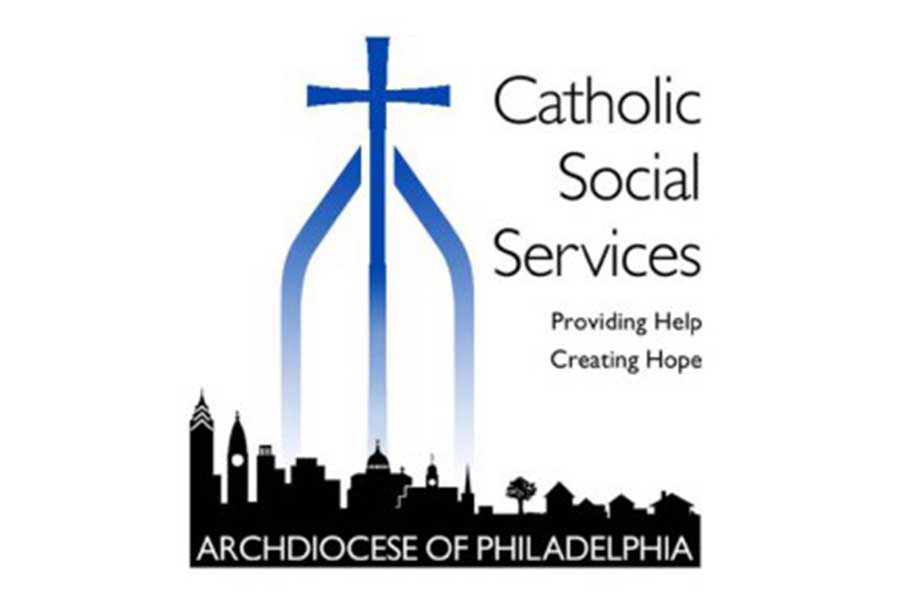A federal-appellate judge this week urged city officials and Catholic Social Services to avoid protracted litigation by resolving their legal dispute regarding CSS’ refusal to place foster children with same-sex couples.
“This cries out for some type of resolution,” said Third Circuit Judge Thomas L. Ambro during oral arguments Nov. 6. “As I look at this case, it seems like people are trying to get together. I don’t know why we hit this constitutional wall.”
In March, city officials stopped referring foster-care children to CSS after published reports disclosed the agency wouldn’t place children with same-sex couples. City officials said CSS’ policies violate the city’s Fair Practices Ordinance, which bans LGBT bias in public accommodations. But two months later, CSS filed suit against the city, claiming violations of its constitutional rights to freedom of speech and religion.
During a 75-minute court proceeding, Lori H. Windham, an attorney for CSS, told Ambro the agency would like to resolve its differences with the city. “CSS doesn’t want to be in federal court,” she told Ambro. “Unfortunately, the city has dug in its heels.”
Windham said CSS has sincerely held religious beliefs against same-sex marriage. She said it’s wrong for the city to reject CSS’ offer to refer same-sex couples to other foster agencies for child placement. Such referrals wouldn’t constitute illegal discrimination against a same-sex couple. Instead, CSS would be exercising its constitutional rights, according to Windham.
She also emphasized that no same-sex couple has requested a foster child through CSS and that the city cannot demonstrate any harm caused by CSS’ religious beliefs.
Ambro and two other Third Circuit judges — Marjorie O. Rendell and Anthony J. Scirica — must decide whether to order a lower court to issue an injunction forcing city officials to refer foster-care children to CSS.
According to court testimony, CSS received about $1.7 million annually from the city for foster-care services prior to referrals being halted. CSS currently provides services for 97 foster children. The agency’s lawyer said if it doesn’t get additional referrals from the city, it may have to close its foster-care program. The city contracts with 29 other agencies to provide foster-care services for about 5,700 children.
Jane L. Istvan, a city attorney, told the judges that the city has tried to settle the dispute. “We do have a strong desire to continue the contract,” she said, referring to CSS.
But Istvan emphasized that CSS’ offer of referring same-sex couples to another agency is unacceptable. She said such referrals would stigmatize the LGBT community and deny foster children loving affirming homes. Istvan also said allowing CSS to behave in such a manner would convey to LGBT youth that their civil rights won’t be respected when they reach adulthood.
The city provides about $26 million annually to CSS for services apart from foster-care services. Still, Windham told the judges that city officials are hostile to CSS’ religious beliefs and are targeting them for unfair treatment.
Rendell openly scoffed at that notion. “To infer that something hostile is going on just doesn’t make sense,” the judge told Windham.
Rendell also said it would be wrong for city officials to exempt CSS from the city’s LGBT-inclusive antibias policies. “If they were to exempt you, they would be establishing religion,” Rendell told Windham.
Ambro suggested to Windham that CSS compromise by placing children with qualified same-sex couples while clarifying that it continues to oppose same-sex marriage. He noted that another foster agency, Bethany Christian Services, settled its differences with the city in such a manner. However, Windham said such a compromise would be unacceptable for CSS.
State law requires foster agencies to consider a variety of factors before approving a foster parent, including whether the person has the ability to nurture and supervise a child, whether the person’s home is safe and appropriate and whether the person has supportive ties within the community. After the hearing, Windham had no comment regarding the possibility of CSS evaluating all those factors before approving or rejecting a same-sex couple as foster parents.
Leslie Cooper, deputy director of the ACLU’s LGBT and HIV Project, argued on behalf of the Support Center for Child Advocates and Philadelphia Family Pride, intervenors in the case who advocate on behalf of children in the city’s foster-care system and families headed by same-sex couples who seek to care for them.
Cooper told the judges it’s unclear how many other foster agencies that contract with the city would choose to discriminate if CSS is allowed to. She also emphasized that CSS doesn’t have a constitutional right to have a foster-care contract with the city, nor does it have a constitutional right to be exempt from antibias provisions within the contract.
After the hearing, Cynthia F. Figueroa, commissioner of the city’s Department of Human Services, emphasized that the city isn’t experiencing a critical shortage of foster parents.
“We’re not in a crisis because of this [CSS] situation,” Figueroa told PGN.
She also reaffirmed the city’s commitment to nondiscrimination: “We feel strongly that all children and families should be treated equally and not be discriminated against.” A decision is expected within the next several weeks. Windham told PGN after the hearing that the case ultimately may end up in the U.S. Supreme Court.
Stephanie Haynes, executive director of Philadelphia Family Pride, said in an email that the group “is so happy that our families were represented in this case. We are very happy with the work that the ACLU and Dechert law firm have done on our behalf.”
Reggie Shuford, executive director of the ACLU of Pennsylvania, also attended the hearing and was optimistic about a ruling in favor of the city of Philadelphia. “I am pleased with how today’s argument went,” Shuford said. “The [lower] court ruled that Catholic Social Services should not be allowed to rely on religious-freedom arguments to discriminate against LGBTQ foster families. I hope that the Third Circuit Court of Appeals will affirm that ruling.”
